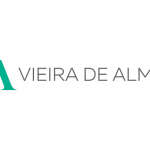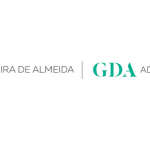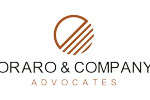António Magalhães Cardoso and Marta Alves Vieira discuss technical expertise in IP litigation matters
Complex intellectual property (IP) litigation matters often require specialised knowledge that the assigned judges and the parties’ counsels generally do not possess.
The facts and the matters at stake in many IP litigation cases – particularly, in patent, utility model or design cases – frequently require experts to participate in the proceedings actively with their specific technical knowledge.
While this intervention is crucial for the parties, who wish to argue their case effectively before the court, and for the judges, who wish to understand the matters in dispute fully, experts may take on different roles, each one with their own objectives and procedural rules.
Experts can participate in the judicial proceedings either as advisers assisting the procedural players or directly in the production of evidence.
Without prejudice to the special rules set out in the Portuguese IP Code, the procedural rules to be followed in IP proceedings are generally established in the Portuguese Civil Procedural Code (CPC).
When preparing a case, it is important to consider strategically – where possible – the various types of participation of experts and to choose carefully the right experts for the right tasks as this may be a key factor for a successful outcome.
Technical advice to the court – technical advisors appointed by the court
In Portugal, IP litigation cases are generally trialled by the Intellectual Property Court (IP Court), which is a specialised state court, with jurisdiction at a national level. The IP Court has been operating since March 2012 and has jurisdiction to adjudicate all IP matters, pursuant to the law.
Portuguese judges obviously have a law degree and must undergo a specific training to become judges, but to be allocated to the IP Court no specific technical/scientific background is required.
For instance, in relation to patent litigation, many of the judges sitting in IP courts in other jurisdictions may have been barristers practising in IP or may also have a scientific degree (as in the UK and Switzerland). In some cases, even if the judges do not have a formal technical background, they are typically very experienced in patent matters (as in Germany).
Therefore, the participation of experts in the proceedings may be even more important in Portugal.
If the IP cases involve matters requiring a technical knowledge that the judges do not possess, judges (on their own motion or at the parties’ request) may require the assistance of technical experts, to get a solid grasp of the disputed matters.
Under the CPC, where the disputed facts raise difficulties of technical nature which solution depends on special knowledge that the court does not possess, the judge may appoint a person skilled in the art to attend the final hearing and provide him/her with the clarifications deemed necessary. The court may also request – at any stage of the proceedings – technical opinions deemed crucial for establishing the facts.
The same grounds for disqualification applicable to judges apply to these technical advisors appointed by the court under the CPC.
An inadequate appointment or any misconduct of a technical advisor can have a strong impact on the final decision and may even prevent a fair result.
Considering that the technical advisors appointed by the court play a crucial role in the case and must offer the judge a fair and neutral point of view, extra caution should be taken in relation to their selection. An inadequate appointment or any misconduct of a technical advisor can have a strong impact on the final decision and may even prevent a fair result.
Selected technical advisors must therefore be true experts on the relevant technical field as well as independent and impartial. Both the parties and the court must make all possible efforts to contribute to the choice of an adequate person.
Technical advice to the lawyers – technical advisors appointed by the parties’ lawyers
Some countries only allow specific counsels to litigate before a court.
In Portugal, all lawyers admitted to the Portuguese Bar Association can litigate before a court.
Most IP litigation lawyers do not have a scientific/technical background.
Since IP litigation often involves sophisticated technical issues, lawyers often need the assistance of technical experts and/or IP practitioners when preparing their case and arguing it at the hearings.
Under the CPC, lawyers may be assisted by experts during the taking of evidence and the discussion of the dispute, when issues of a technical nature for which the lawyer does not have the required preparation arise in the proceedings. The lawyer who wishes to be assisted by a technical advisor must appoint him/her prior to the hearing and indicate the issues for which the assistance is required. The technical advisor will enjoy the same rights and duties as the lawyers regarding those issues and may even examine the witnesses but remains subject to the lawyer’s direction and is not allowed to submit oral pleadings.
Documentary evidence – written expert opinions
During the proceedings, the parties can submit expert written opinions as documentary evidence.
The CPC allows the documents to be submitted before the first instance court at any time prior to the decision.
Therefore, experts can provide written opinions (which are not written testimonies/affidavits) prior to being heard as witnesses or instead of deposing orally.
Expert evidence – formal expertise
A formal expert evidence may be ordered by the judge on his/her own motion or at the request of the parties.
The expert evidence is requested to an institution, laboratory or adequate official services or, when it is not appropriate nor convenient, it may be requested to an individual expert who is appointed by the judge among individuals of recognised reputation and acknowledged expertise on the matters at stake.
The experts must be independent and have no interest in the dispute. The same grounds for disqualification applicable to judges apply to these formal experts.
Experts can provide written opinions (which are not written testimonies/affidavits) prior to being heard as witnesses or instead of deposing orally.
The expertise can be conducted by a single expert or by a panel of experts (one court-appointed and two party-appointed experts).
The experts are to answer direct questions in a technical report.
Parties may comment on the experts’ report or request the experts to attend the final hearing in order to provide oral clarifications regarding their assessment. They may also request a second expertise with different experts to complement the previous one.
Witness evidence – expert witnesses
The parties can call witnesses to be examined at the hearing (they need to take an oath).
In IP cases it is quite common for parties to resort to expert witnesses who provide to the court their technical opinions on the disputed matters.
In Portugal, written testimonies/affidavits are not common, and they are only established for cases where it is impossible or very difficult for the witness to attend the hearing.
Cross-examination of expert witnesses is allowed, but it is limited to the scope of the examination.
Expert witnesses must reveal to the court any relationship they may have with the parties or any direct or indirect interest in the dispute.
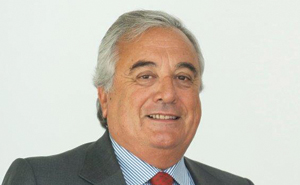
António Magalhães Cardoso
Senior partner, intellectual property
E: amc@vda.pt
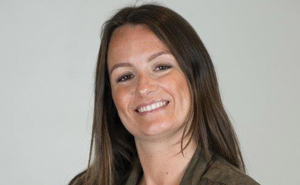
Marta Alves Vieira
Of counsel, intellectual property
E: mav@vda.pt









